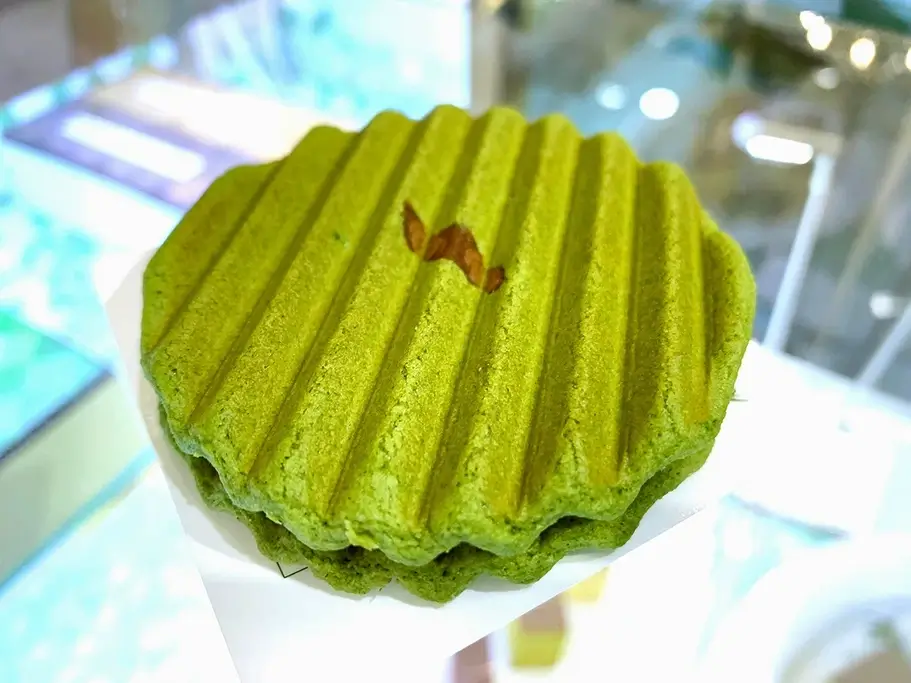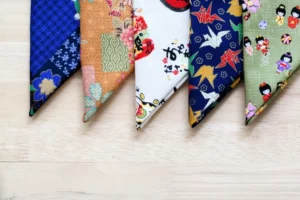Fukuwatashi senbei is a popular Japanese treat that blends tradition and charm with a smooth, sweet flavor. Unlike typical Japanese rice crackers, which are savory, these cookies are light, crisp, and creamy. Each bite offers a gentle crunch and soft filling, making them a favorite for gifting or afternoon tea. This elegant wagashi shows how Japanese sweets continue to evolve while keeping their cultural roots!
Table of Contents
ToggleA Sweet Symbol of Good Fortune
Fukuwatashi senbei is a Japanese confection known for its crisp texture and smooth, creamy filling. The name means “crossing over with fortune.” The snack carries that sense of good luck in its flavor and presentation. Each piece features a gentle wave pattern and is often gifted as a sign of good fortune or celebration. Minamoto Kitchoan, a confectioner that blends traditional flavors with modern taste, produces the cookies, which makes them much different from Japanese rice crackers.
Bite into one, and you’ll get a satisfying snap from the cookie, followed by a soft burst of cream. Its simple but refined design makes it a favorite during holidays, gift-giving seasons, or teatime. These cookies are both a snack and a symbol of well-wishing, perfect for friends, family, or co-workers. Their long shelf life and attractive packaging make them an easy souvenir from Japan.
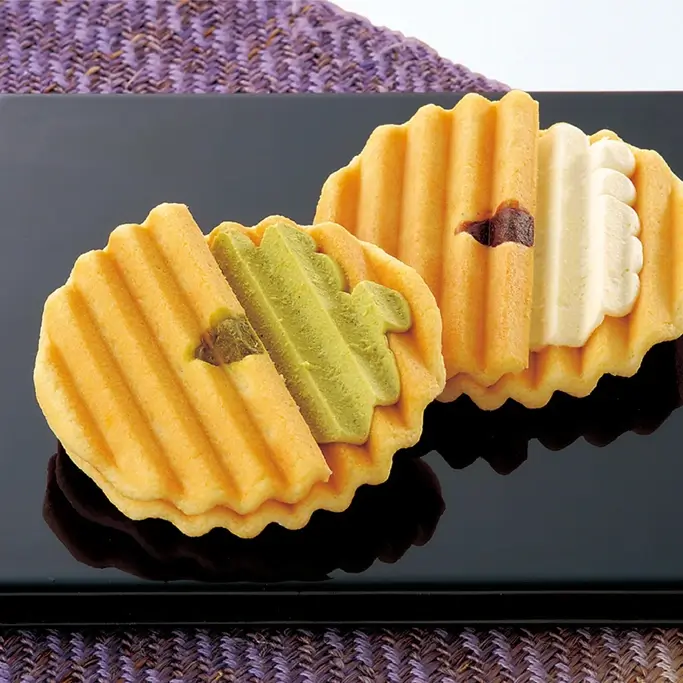
How does it taste different from Japanese rice crackers?
Fukuwatashi senbei are round, lightly baked biscuits with a unique wave pattern sandwiched between a soft cream filling. The cookies are buttery and crisp, similar in texture to European langue de chat or wafers. Inside, the cream is smooth and gently sweet, with popular flavors like vanilla and matcha. This combination creates a snack that’s not too rich or overwhelming but still deeply satisfying.
Even though “senbei” is usually used for crunchy rice crackers, these cookies belong to the wagashi family of Japanese sweets. The treat is designed to be approachable for all ages, from young children to older adults. Because of its mild sweetness, it pairs beautifully with green tea, coffee, or even milk. Some seasonal varieties, such as chestnut cream or sakura flavors, also appear throughout the year.
Are you looking for amazing snacks like fukuwatashi senbei? Sakuraco delivers traditional Japanese snacks, teas, sweets, and snacks from local Japanese makers directly to your door so you can share more of Japan’s rich culture.

Packaging, Shelf Life & Where to Buy
Fukuwatashi senbei are sold in gift-ready boxes of varying sizes. Each cookie is individually wrapped, preserving freshness and making it easy to share or portion out slowly. They are available in most major Japanese department stores, Minamoto Kitchoan locations, and online shops. Shelf-life ranges from 40 to 50 days, depending on storage conditions, and the cookies stay crisp if kept in a cool, dry place.
The outer box often features seasonal designs or traditional motifs, which makes the gift feel even more intentional. Their neat packaging and long-lasting quality make them perfect for omiyage. It remains popular for tea parties, corporate gifts, or quiet evening snacks. Everything about the experience, from unwrapping to the last bite, feels elegant and effortless.
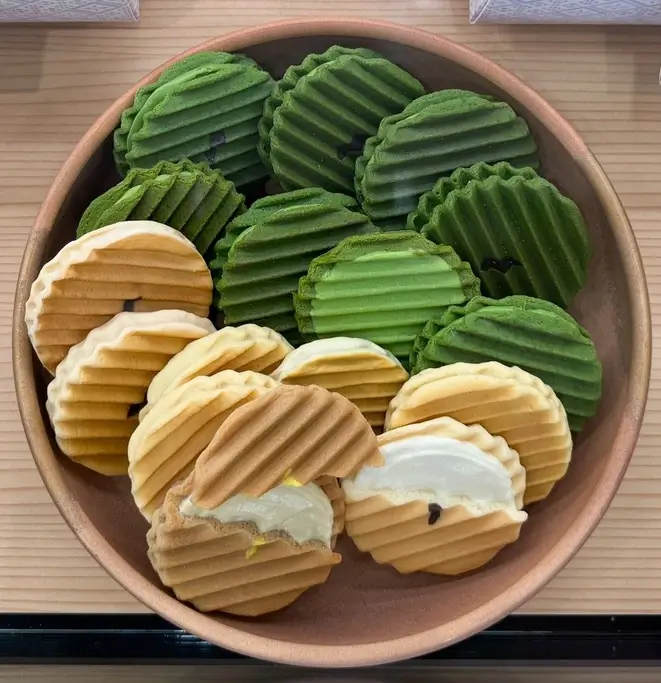
Pairing Fukuwatashi Senbei with Drinks
Fukuwatashi senbei pairs beautifully with a variety of drinks. Traditionally, the sweetness of the cream-filled cookie complements the bitter notes of Japanese green tea, making it an ideal match during afternoon tea. Matcha enhances the subtle filling without overpowering it. Genmaicha (roasted rice tea) provides a nutty undertone that harmonizes well with the crisp cookie shell for those who prefer a softer balance.
Outside of traditional teas, fukuwatashi senbei adapts easily to modern tastes. Coffee, exceptionally light to medium roasts, brings out the buttery notes of the biscuit while cutting through the creaminess of the filling. For a more indulgent pairing, pair the sweets with hot cocoa or milk to create a delicious combination. Some even enjoy them with chilled drinks such as iced hojicha or fruit-infused teas in the summer months.
Other Offerings from Minamoto Kitchoan
Minamoto Kitchoan is known for its refined approach to wagashi, offering a range of sweets beyond fukuwatashi senbei. One of their most famous items is Momoyama, a soft white bean confection baked to a golden hue with a delicate flavor. They also produce Kuri Kinton, a chestnut-based sweet popular in autumn and the New Year. For fruit lovers, jelly-like treats like Kingyoku showcase seasonal fruits in a translucent casing.
In addition to year-round offerings, Minamoto Kitchoan releases limited-edition collections during Japanese holidays like Hinamatsuri, Obon, and the New Year. Their Seasonal Assortment Boxes feature rotating selections that often include yōkan, monaka, and matcha-flavored sweets. Each piece is presented with carefully chosen packaging that reflects the time of year, often using motifs like plum blossoms, maple leaves, or cranes.
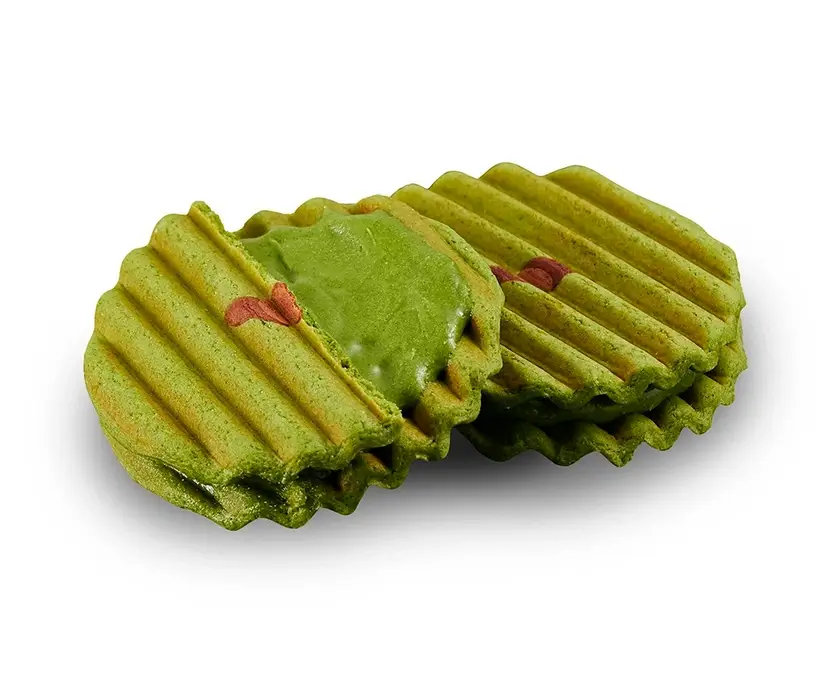
Why should you try fukuwatashi senbei?
People try fukuwatashi senbei because it combines the best of crispy and creamy in a modern and traditional form. The wave design reflects a desire to bring comfort and good fortune through food. This makes it ideal for snacking and giving to others in moments of thanks, celebration, or reflection. It has enough richness to satisfy without being heavy and doesn’t rely on artificial flavors to stand out.
Trying it is also a way to connect with a uniquely Japanese approach to gift-giving and seasonal treats. Like many wagashi, these cookies balance form and function with care. You’re enjoying something made with intention, from its name to its packaging. The senbei’s calm flavors make it easy to enjoy with tea, making it part of a quiet, reflective moment. The experience is soft, sweet, and genuinely delightful. Have you ever tried Fukuwatashi Senbei or have a favorite wagashi? Let us know in the comments below!
Cited Sources
- Minamoto Kitchoan. “About Page“.
- For Arata. “【源吉兆庵】福渡せんべいはまずい?おいしくない?どこで買える?手土産・お土産に!“
- Tokyo Wagashi Association. “About Wagashi“.

